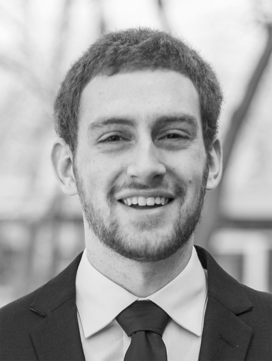Raffi Grinberg ’12 Builds Personal Finance Tools for Millennials
When students in the Princeton course MAT 215: “Analysis in a Single Variable” don’t know what’s going on, they’ll often consult Raffi Grinberg ’12’s senior thesis — a text he created specifically for the class. (The official version, The Real Analysis Lifesaver, comes out in January.) This book, which aims to explain basic and difficult concepts to students in an intuitive and simple way, ultimately laid the foundation for Grinberg to develop his first startup.

Grinberg’s recently launched company and app, DollarsEd, educates millenials about personal finance much in the same way as his senior thesis intended to teach complicated math concepts to students: by breaking down credit scores, taxes, and buying health insurance into easy-to-understand parts, only this time through an app.
“DollarsEd and the textbook are completely separate things, but the connection is that writing the textbook gave me this experience [that] was super valuable as a skill — like educational writing — that I used to create DollarsEd. They’re written in very much the same style,” he said.
The idea for DollarsEd stemmed from his own experience with post-graduation cluelessness about personal finance while consulting at Bain & Co. and his realization that many other millennials have no idea how to handle their finances.
“When I was starting out at Bain, it was one of our first days and we were given the HR benefit selection: What kind of retirement account do you want? What kind of insurance do you want? And I was like, I have no clue how to do any of this stuff. I didn’t even have a credit card and my dad was helping me to do taxes every year, and that was even with having studied math at Princeton,” he said. “So I sort of made it a personal mission to learn as much about it as possible.”
Grinberg, a math major who earned a certificate in computer science, also recently released the beta version of his second endeavor, UpLift, which is an interactive cognitive behavioral therapy program for smartphones aimed to help those suffering from depression by providing a low-cost and accessible form of therapy.
“We wanted to meet people where they are,” he said. “It’s basically taking something that we know is really effective and helps people a lot, and just making it 100 percent available.”











No responses yet